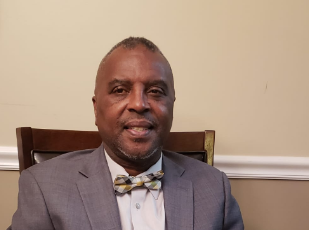Sexual Offenders Tarnish Reputation of Kenyans Abroad

A Kenyan man has been arrested in North Carolina after allegedly attempting to pay for sex with a person he believed to be a 15-year-old girl, who was in fact an undercover officer.
Stanley Amalemba Ambeyi, 38, was taken into custody during a sting operation conducted by federal agents. He is accused of offering $150 for sexual activity and now faces serious charges under federal law, which could result in a lengthy prison sentence if convicted.
Ambeyi’s arrest is among several recent cases involving Kenyan nationals charged with sexual offences in the United States. Over the past three years, at least a dozen Kenyans have been prosecuted for crimes ranging from child exploitation to sexual assault. Many of these cases involve minors and online law enforcement operations.
In Washington State, authorities are searching for Martin Njogu Njoki, 43, who failed to appear in court after being charged with unlawful imprisonment and indecent liberties. Njoki, a former Lyft driver, is accused of sexually assaulting a 16-year-old passenger in February. He was initially arrested and later released on a reduced bond, but his current whereabouts are unknown.
In another case, a Kenyan IT professional in Texas is accused of molesting his two daughters before fleeing to Nairobi. An international warrant has since been issued for his arrest. In Minnesota, former Kenyan parliamentary aspirant Abdullahi Yussuf Sheikh Nur was detained during a police operation targeting individuals attempting to solicit sex from minors.
Authorities allege that Nur continued to communicate with someone he believed was a 17-year-old girl, despite being informed of her age. He was arrested at a local golf course. Other cases include a Kenyan Uber driver in Minnesota sentenced to eight years in prison for sexually assaulting a female passenger, and a man in Boston accused of running a pornography ring that allegedly exploited women in Kenya to produce content distributed in the US.
While these incidents are not connected, they have prompted concern among Kenyan diaspora communities and leaders, who say the pattern reflects a need for greater legal awareness and personal accountability. Margaret Ruto, a nurse and human rights advocate based in Pennsylvania, said many individuals caught in sting operations do not fully understand the legal consequences of their actions.
“What suspects believe are casual exchanges with strangers often turn out to be sting operations run by police,” she said.
Ruto stressed that even online conversations with minors can lead to serious federal charges. She also pointed to issues of social isolation and cultural adjustment, suggesting that loneliness may drive some individuals to engage in risky online behaviour. Her concerns are shared by diaspora organisations, which have noted an increase in law enforcement operations targeting immigrant populations.
Among these is Operation Take Back America, a federal initiative launched by the US Attorney’s Office. The programme aims to combat illegal immigration and dismantle transnational criminal activity but has faced criticism for allegedly placing disproportionate scrutiny on minority communities, including African immigrants.
A senior official at the US Embassy in Nairobi, who spoke on condition of anonymity, confirmed that embassy staff regularly receive calls from families of detained Kenyan nationals.
“We get desperate calls from families almost every month. The truth is, consular support is minimal once someone is facing a criminal case. The US system is strict, and legal aid is expensive,” the official said.
Kenya’s diaspora continues to grow and contributes significantly to the national economy, sending home more than Sh600 billion annually. Community leaders are now urging a renewed focus on legal education, ethical conduct, and accountability to protect the reputation of Kenyans living abroad.
“One case is already too many,” said Ruto. “But when you start counting them, you realise we are facing a serious problem.”





